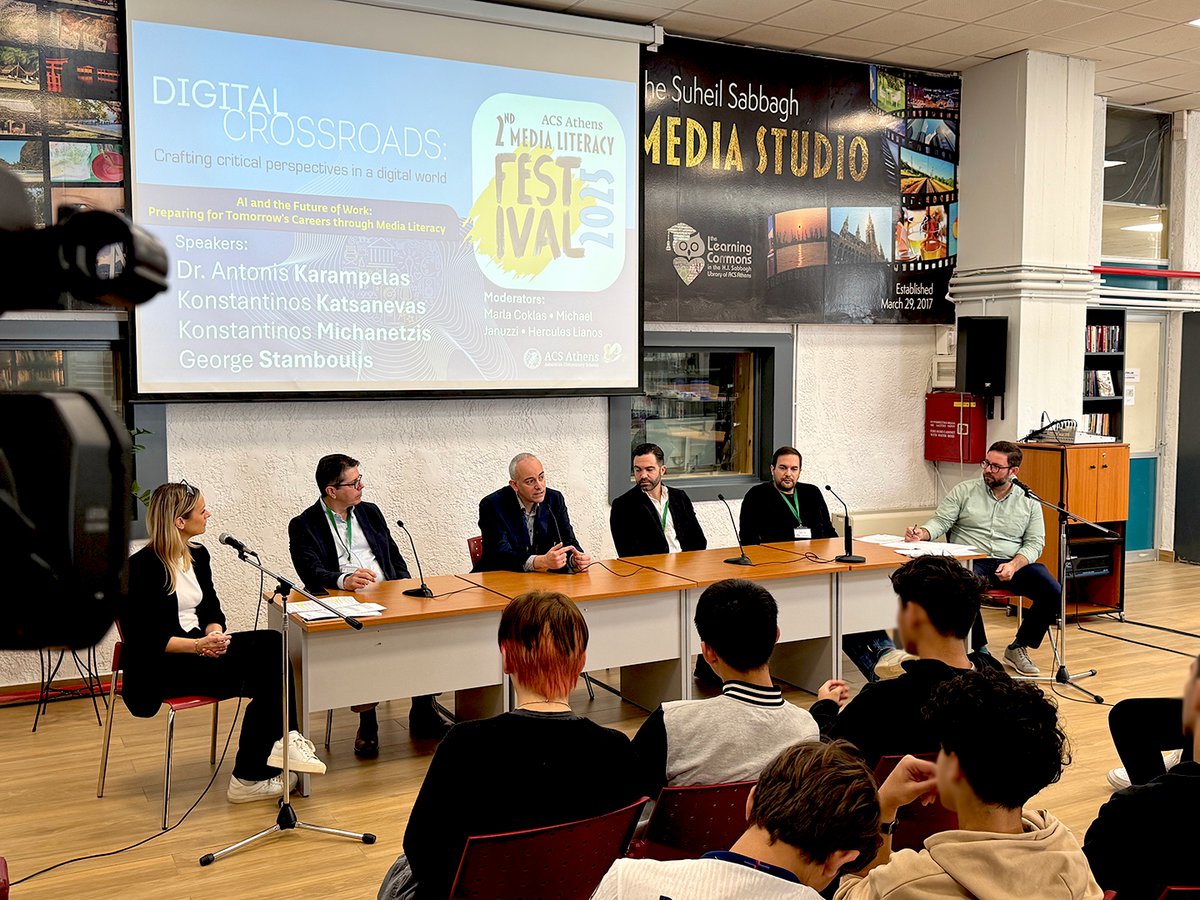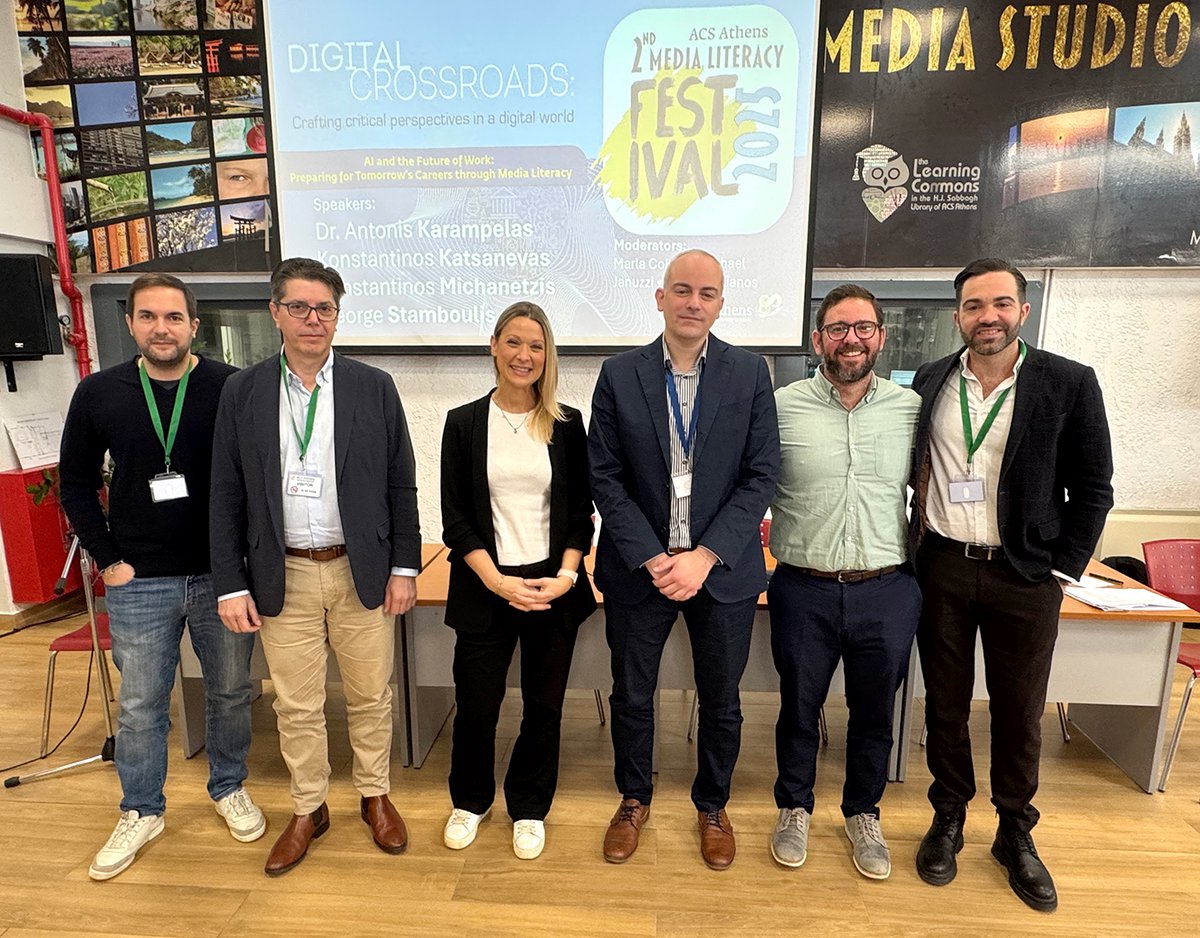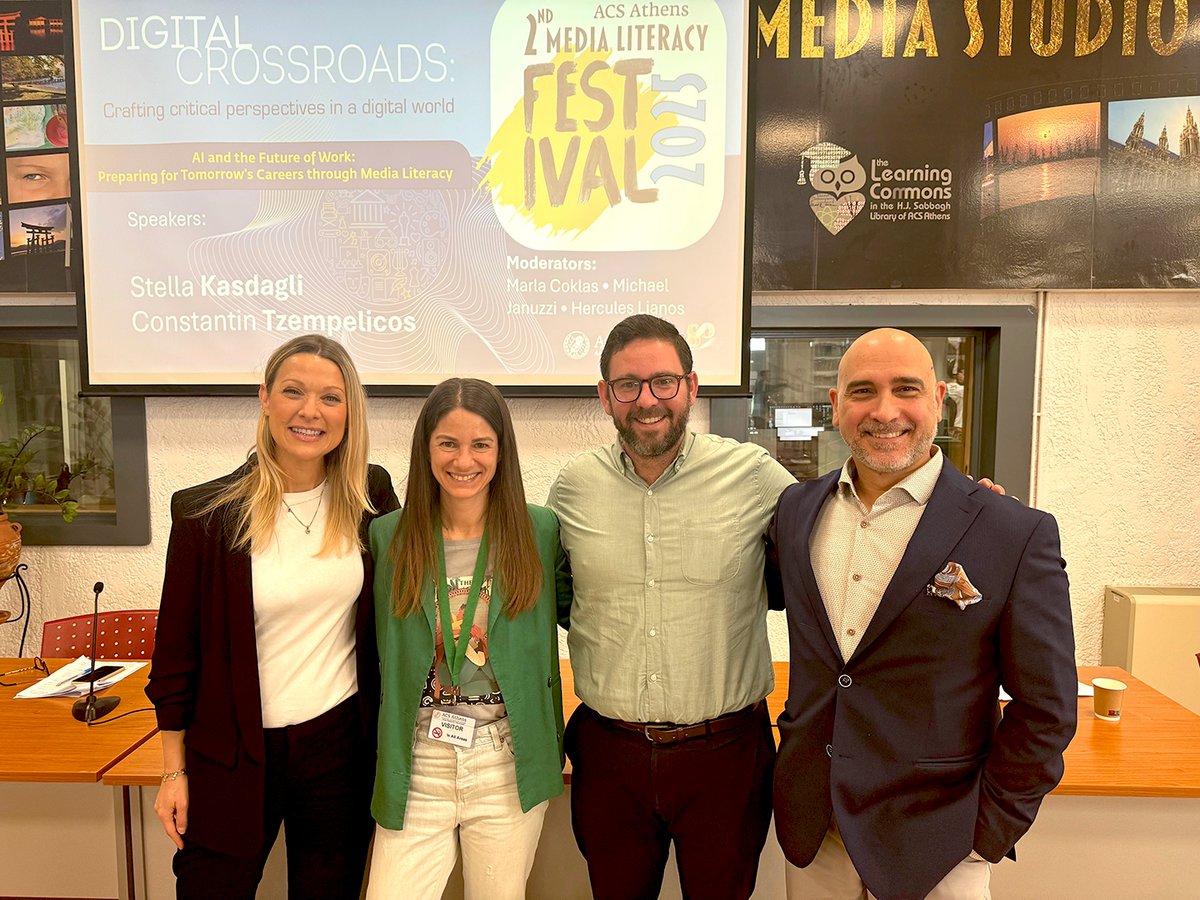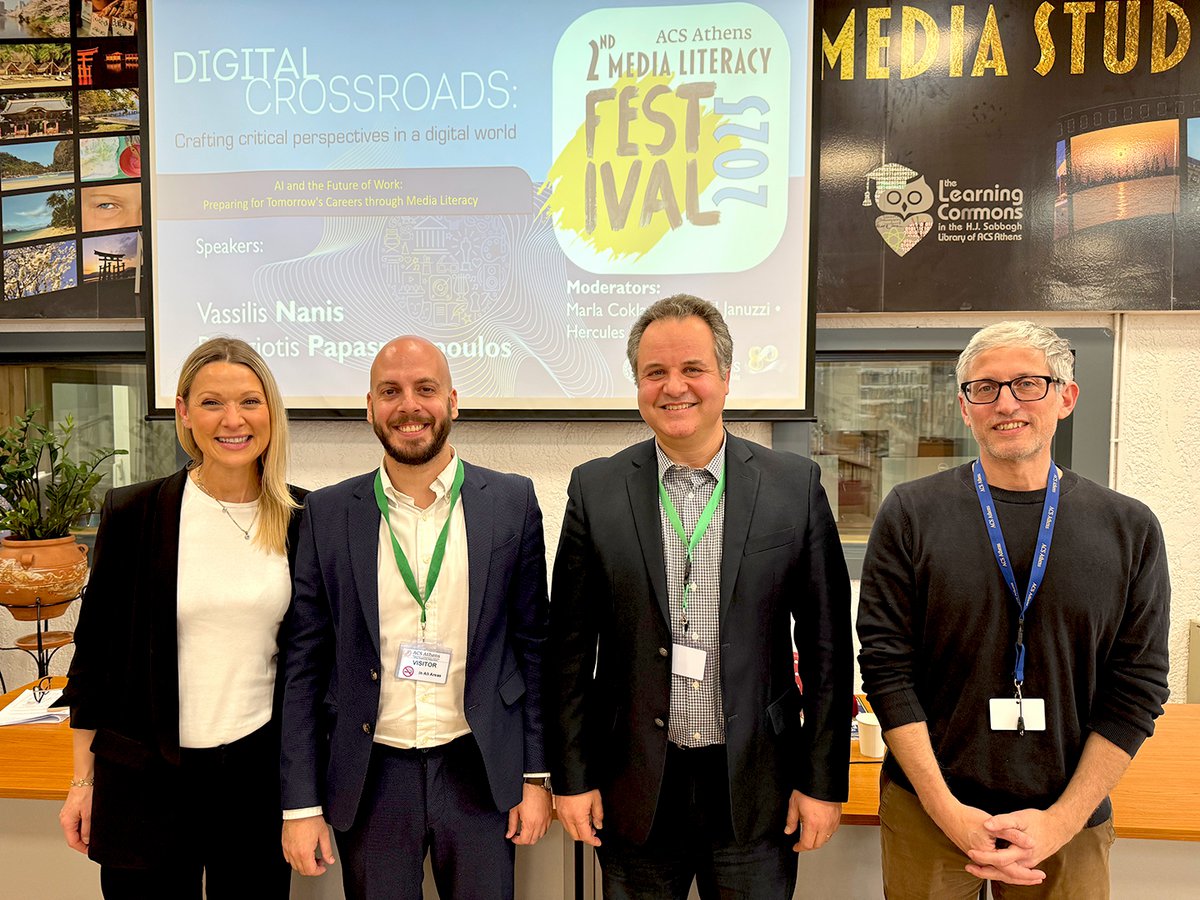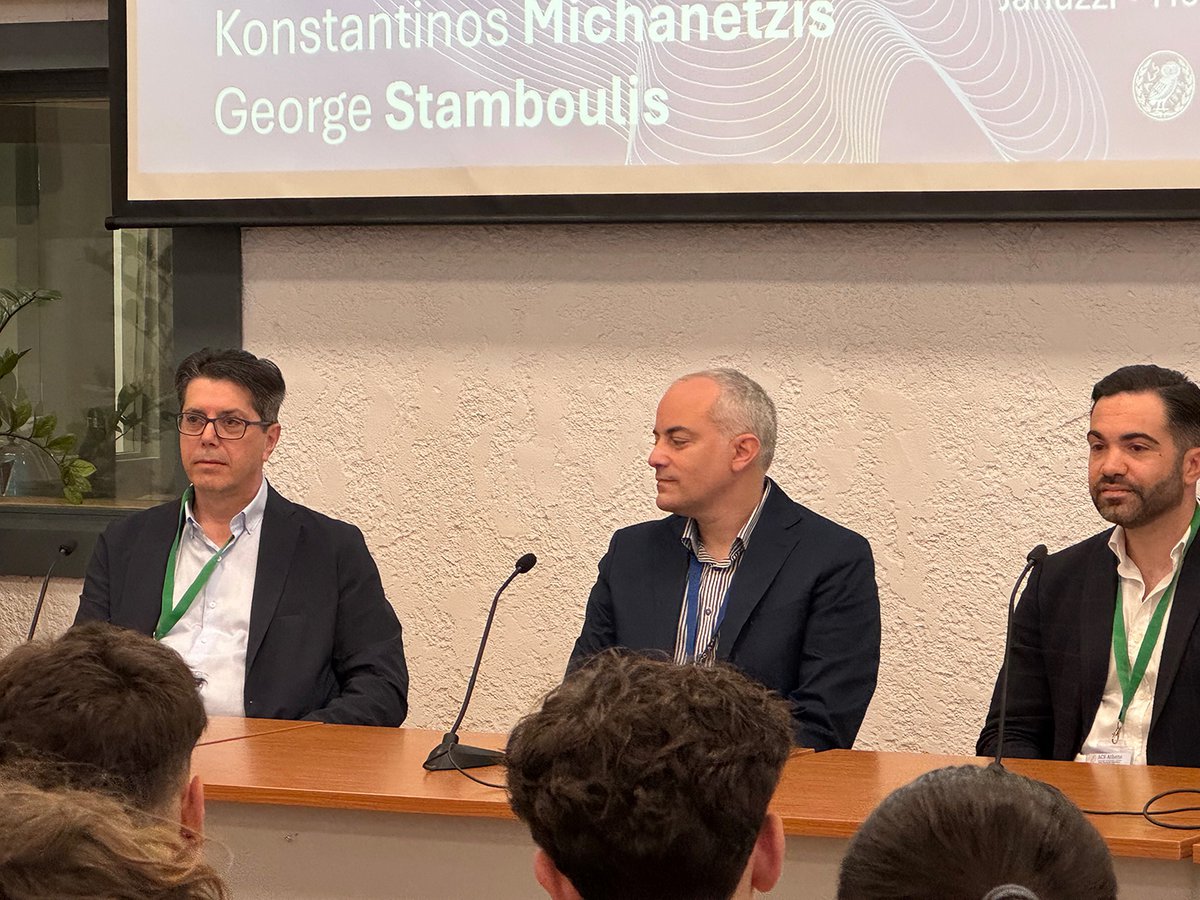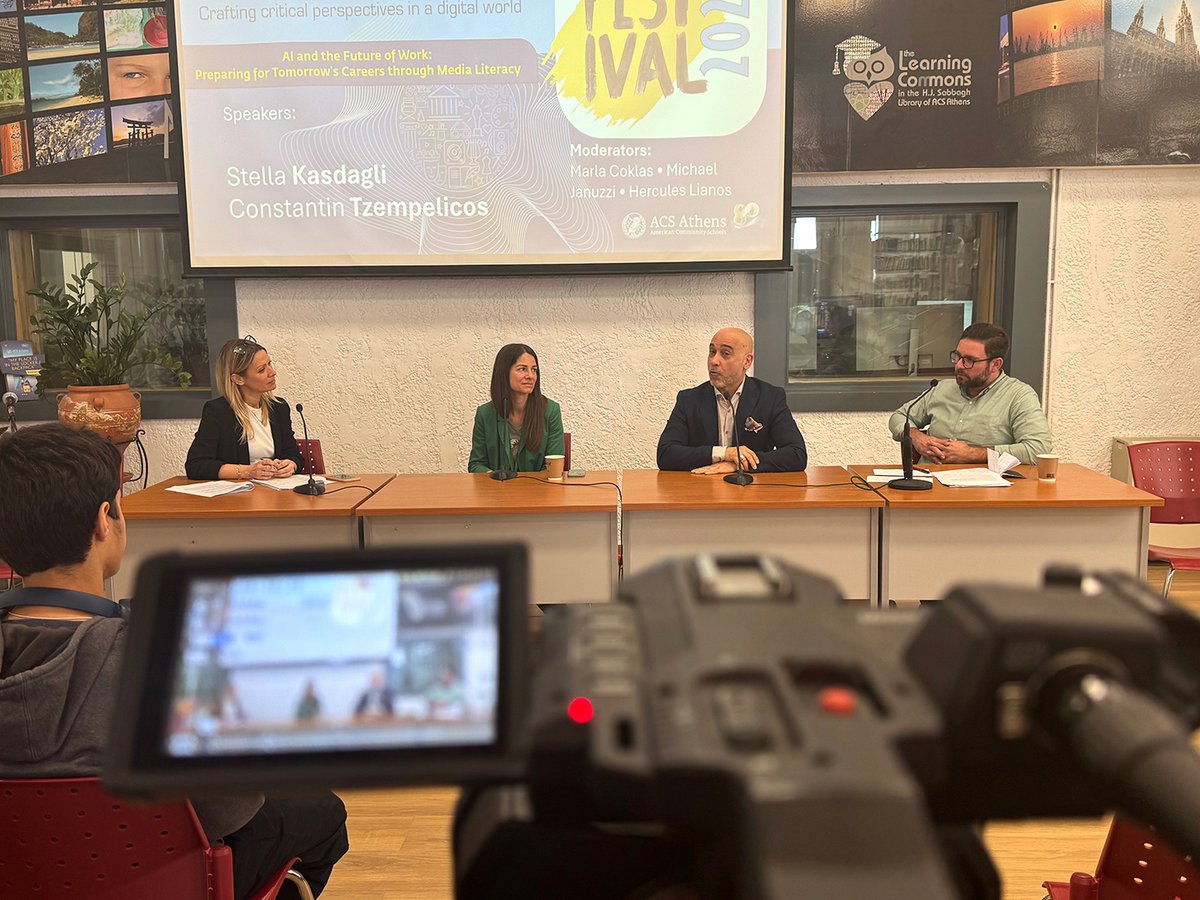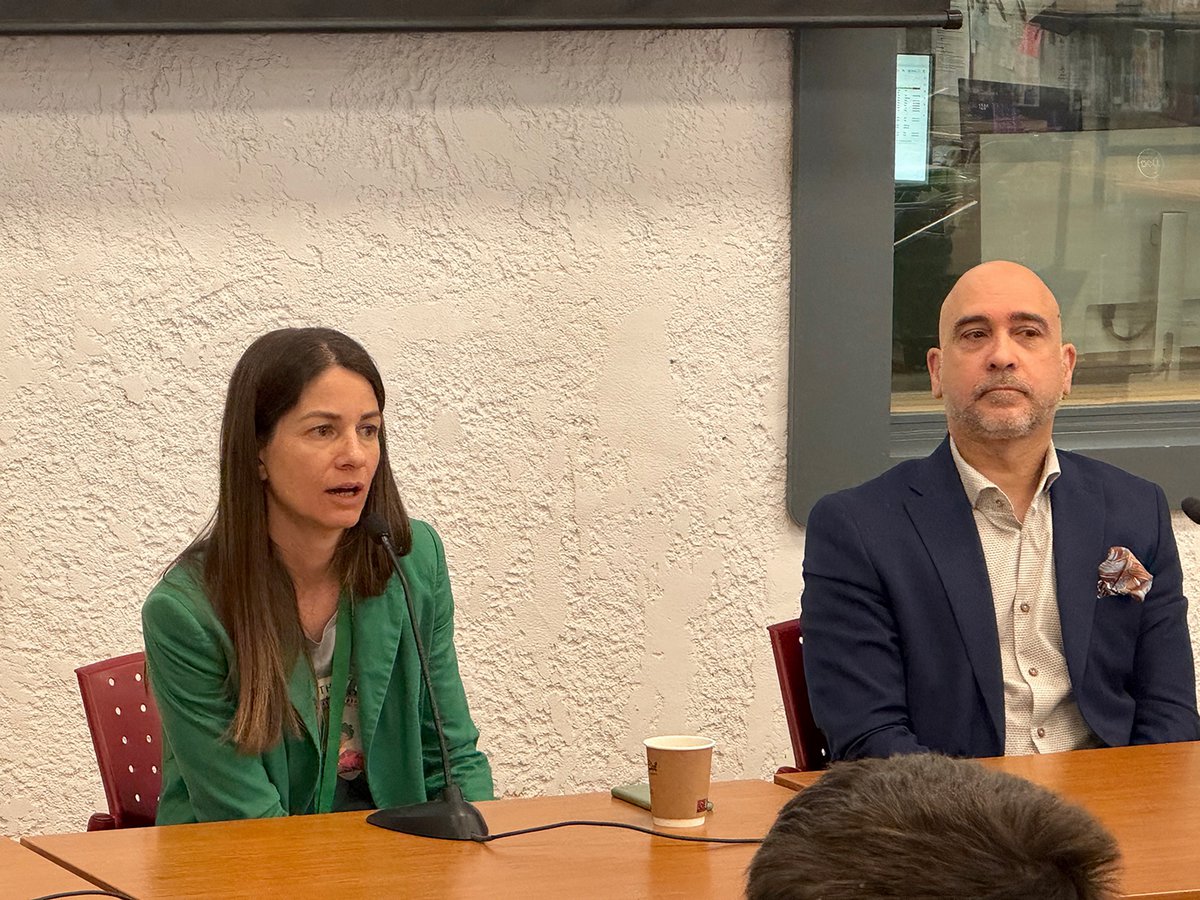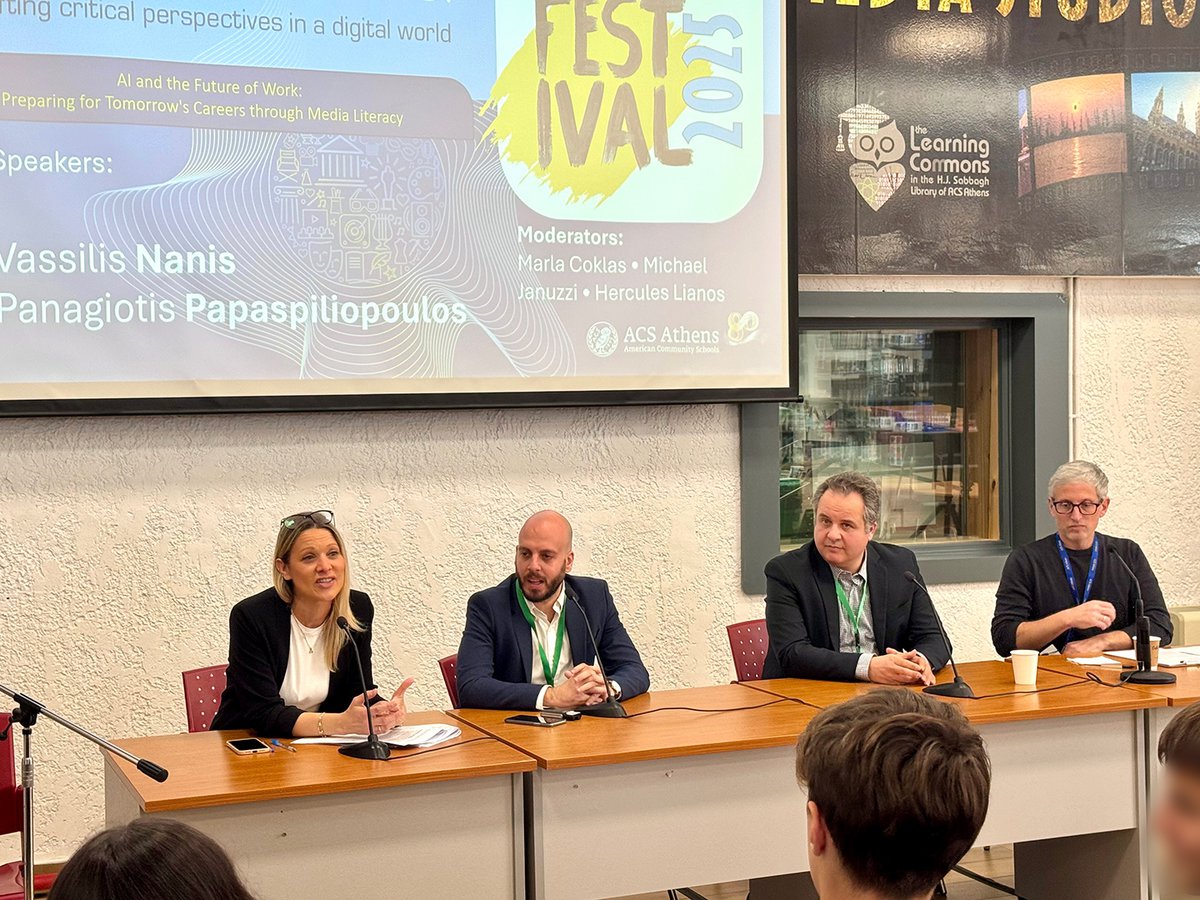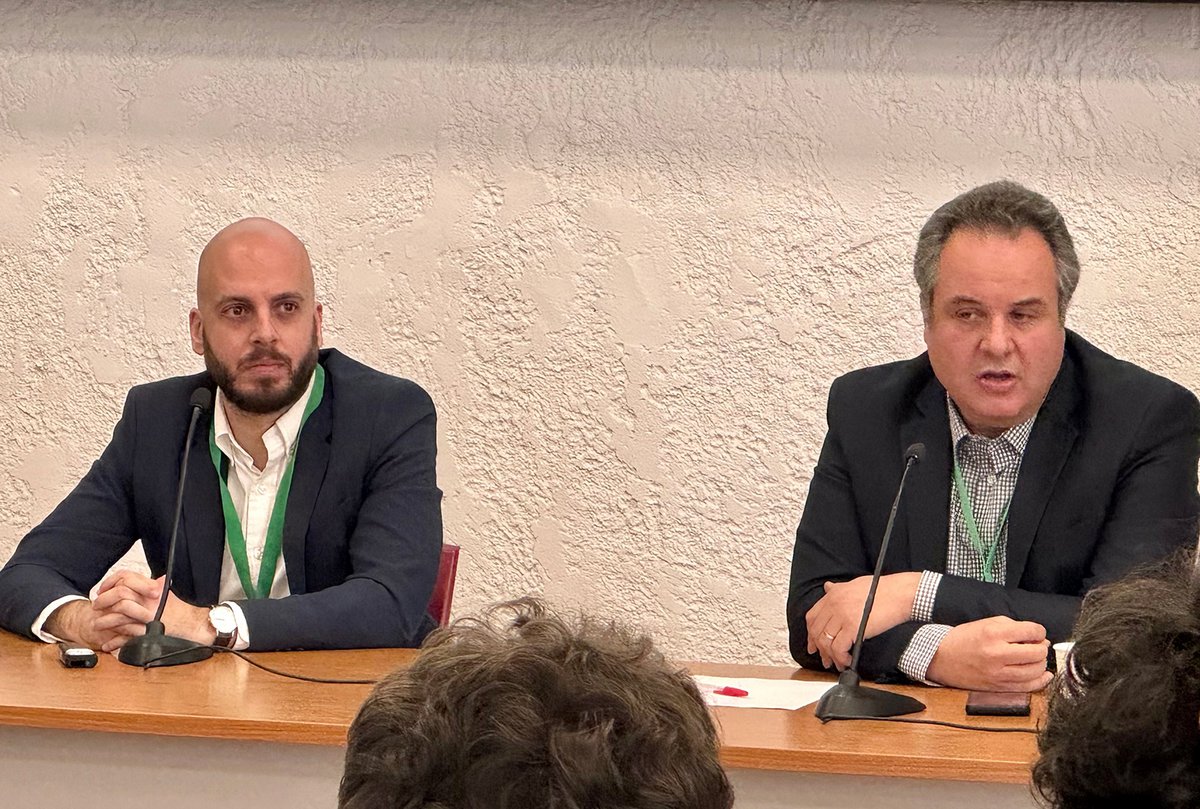PANEL 1
Titled “AI and the Future of Work: Preparing for Tomorrow’s Careers through Media Literacy,” the first panel designed to engage with 10th grade Academy students was moderated by Marla Coklas, Michael Januzzi, Academy English & Social Science teachers. The expert panelists included George Stampoulis, Founder and CEO of ArtVolt, a pioneering art-focused mobile platform, Konstantinos Michanetzis, founder and CEO of Seeders Venture Studio, Dr. Antonis Karampelas, ACS Athens Science & Tech Faculty and Division Chair of Technology and Kostis Katsanevas, Managing Director of Career Gate. The discussion explored the ways AI is reshaping industries and the pivotal skills students need for a rapidly changing job market.
Kostis Katsanevas focused on how AI disrupts traditional labor structures. Rather than replacing only repetitive tasks, it increasingly automates high-skill positions (like coding or finance) while leaving some manual jobs unaffected. This calls for agility and resilience among young people, who may switch careers several times. The panel emphasized analytical thinking, problem-solving, and adaptability as top competencies.
Questions from the student audience addressed how to become more “AI-savvy,” whether LinkedIn helps high school students connect with professionals, and how to verify media sources amid widespread misinformation. Panelists unanimously agreed that critical thinking, digital literacy, and collaborative problem-solving remain essential in an AI-driven landscape.
Ultimately, all speakers converged on a message of cautious optimism. AI may present challenges—including the threat to certain roles—but it also offers unprecedented efficiency. By remaining adaptable, ethical, and collaborative, students can use AI as a powerful tool without compromising human creativity and judgment.
PANEL 2
The second panel under the same them was also moderated by Marla Coklas and Michael Januzzi, with guest speakers, Stella Kasdagli, Writer, Co-Founder WHEN & inc.lude and Constantine Tzembelicos, Aviation executive, entrepreneur, and investor, each representing diverse industries.
Ms. Coklas opened by describing how AI has radically impacted classroom practices, sometimes feeling overwhelming. Stella Kasdagli, co-founder of a women’s empowerment nonprofit, explained how AI declutters time by handling tasks like drafting fundraising proposals—what she called “AI as a junior writer.” Yet she warned about relying too heavily on technology, especially for younger students whose problem-solving and communication skills are still developing.Constantine Tzembelicos, drawing on his aviation experience, noted how AI-driven automation parallels earlier technological shifts—like the arrival of the internet. He pointed out that while automation and AI help humans accomplish tasks quicker, they can also cause “complacency”: people may trust technology blindly and lose the ability to think critically in urgent scenarios, such as piloting an aircraft under unexpected conditions.
Both panelists highlighted “soft skills” like empathy, collaboration, and resilience as increasingly critical. Kasdagli singled out the ability to tolerate discomfort—staying focused even when it’s tempting to delegate tasks to AI or to check social media. Tzembelicos underscored the importance of stepping outside one’s comfort zone to spur innovation and creativity.
When students asked how to handle conflict in group projects or professional settings, Ms. Kasdagli offered a framework: self-reflection, shared understanding of each other’s perspective, and nonviolent communication. Mr. Tzembelicos supported that view, by illustrating how misunderstandings can derail collaboration if not managed through active listening.
Ultimately, this panel drove home the duality of AI: a breakthrough tool for efficiency, but also one that can erode critical thinking if left unchecked. The speakers urged cultivating human-centric skills—communication, empathy, adaptability—that no machine can replace.
PANEL 3
In the final session of the festival for the Academy 10th graders, Marla Coklas and Hercules Lianos, English & Social Science teachers, were joined by Vasilis Nanis, a journalist and digital news editor at Greek newspaper “To Vima,” and Panagiotis Papaspiliopoulos, Head of the European and International Affairs Department at Hellenic Ministry of Digital Governance.
Together, they talked about how AI transforms news reporting and policymaking, underscoring the importance of media literacy in tackling misinformation.
Mr. Nanis showcased in what way AI can produce quick, accurate data summaries but how on the other hand struggles to capture the nuance and narrative quality central to journalism. By contrasting AI-generated text with a human-written article, he demonstrated how the emotional depth and context that engage readers often come from human insight.
A major concern was the rise of “deepfakes” and misinformation, both fueled by AI’s ability to fabricate hyper-realistic videos or images. Vasilis Nanis stressed the need for students to verify sources, cross-check multiple outlets, and be skeptical of stories that seem too sensational. Fact-checking sites and “lateral reading” were recommended as key techniques for discerning truth from fiction.
Panagiotis Papaspiliopoulos explained the government’s role in creating a reliable digital environment through regulations and infrastructure development. Initiatives include promoting digital skills alliances and ensuring broadband access across Greece. However, he underscored that true “digital governance” goes beyond connectivity; it requires informed, critically thinking citizens who can wield AI responsibly.
Moderator Hercules Lianos probed whether the push for speed in news—exacerbated by AI—undermines investigative journalism. Mr. Nanis admitted it can, but argued that new roles and strategies may evolve to protect quality reporting. Both Ms. Nanis and Mr. Papaspiliopoulos concluded on a note of guarded optimism: while AI threatens to inundate the media landscape with rapid, potentially misleading content, determined fact-checking, responsible policy, and robust human oversight can keep information accurate and valuable.
